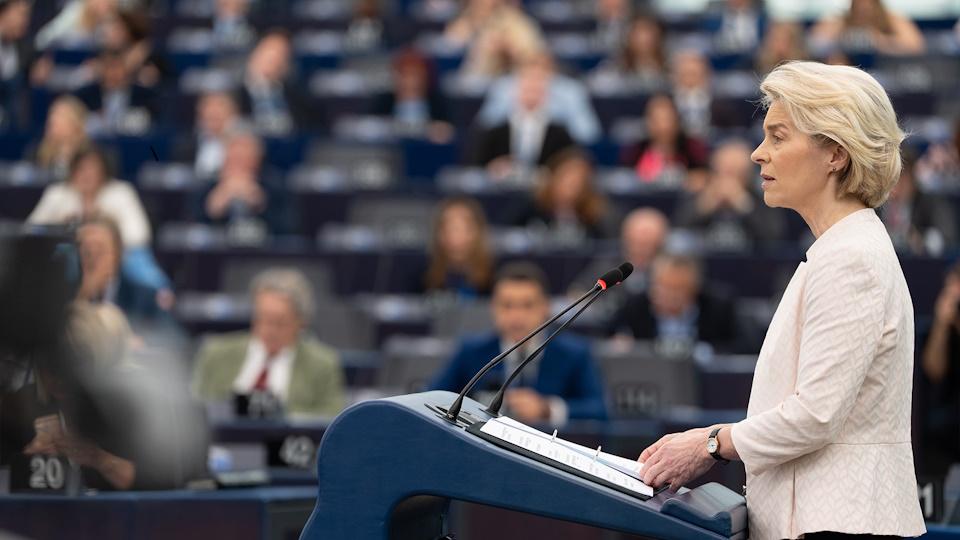EU President fends off no-confidence vote over Pfizer texts

European Commission President Ursula von der Leyen has survived a no-confidence vote in the European Parliament over text messages she sent to Pfizer's chief executive during the COVID-19 pandemic.
More than 70 MEPs, led by Romanian MEP Gheorghe Piperea of the right wing European Conservatives and Reformists Group, tabled a motion of censure against von der Leyen. The motion took her to task for refusing to disclose messages exchanged with Pfizer's Albert Bourla, at the height of the pandemic, concerning vaccine procurement contracts worth billions of euros.
That refusal earned von der Leyen and the Commission a formal rebuke from the EU Ombudsman for 'maladministration', amid claims that 'personal diplomacy' had played a big part in the EU's order for 1.8 billion doses of Pfizer and BioNTech's Comirnaty COVID-19 vaccine.
Earlier this year, she lost a lawsuit attempting to force her to disclose those messages, with judges ruling that the Commission had failed to clarify whether the messages had been deleted and that the plaintiffs – the New York Times and its journalist Matina Stevi – had "succeeded in rebutting the presumption of non-existence and of non-possession of the requested documents."
"Despite this decision of the Court of Justice, the European Commission continues to refuse to make the messages public," said Piperea ahead of the vote, which ended with 175 MEPs in favour of censure, 360 against, and 18 abstentions, with nearly 200 MEPs not showing up to cast their ballots.
That fell well short of the two-thirds majority needed to pass the motion, but is nevertheless a sign of dwindling support for von der Leyen among her core of centre-left support as a result of what some claim is a political shift towards the right.
If it had gone the other way, von der Leyen and the rest of her Commission would have had to step down, plunging the EU into chaos. It is the first no-confidence vote against a Commission president since 2014.
Piperea claimed the refusal to release the texts suggested they contain "something completely compromising," adding: "It's about separation of power in a democracy. If you cannot accept a decision of justice, this means breaking the rule of law."
Von der Leyen, meanwhile, has claimed that the vote was politically motivated, saying in a social media post that it was "taken right from the oldest playbook of extremists, polarising society, eroding trust in democracy."
"In a moment of global volatility and unpredictability, the EU needs strength, vision, and the capacity to act," she continued. "Thank you, and long live Europe."












